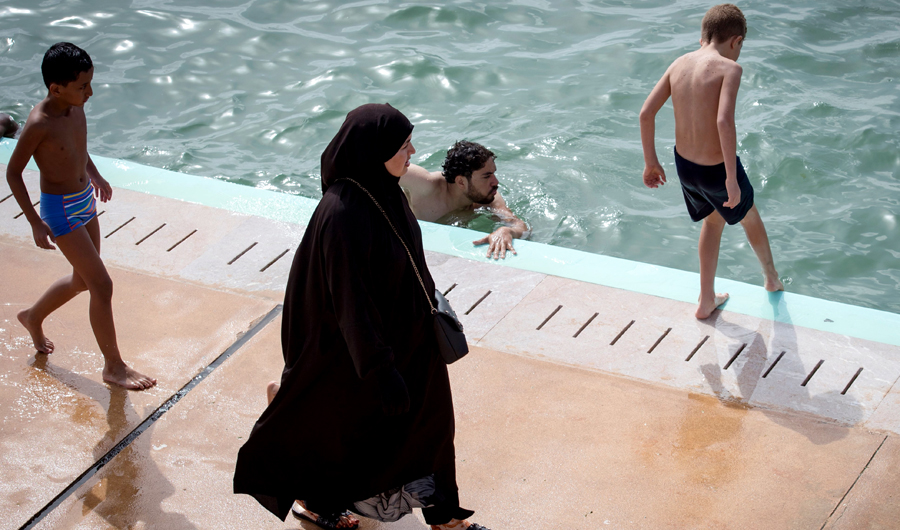20 years after deadly quake, Istanbul ill-prepared for ‘Big One’
ISTANBUL: Twenty years after a devastating earthquake ravaged the northwest of Turkey, Istanbulites live with the knowledge that another “Big One” is unavoidable, and that their city of 16 million is not prepared.
On Saturday, Turkey will mark the anniversary of the 7.4-magnitude quake that hit Izmit — around 100 kilometers east of Istanbul — on August 17, 1999, killing at least 17,400 people, including 1,000 within the economic capital of the country.
The question for seismologists is not if another earthquake will hit Istanbul, which lies along the volatile North Anatolian tectonic plate. The only question is when.
Sukru Ersoy, a specialist at the city’s Yildiz Technical University, estimates it could come within the next decade.
“In the worst case, the quake could reach a magnitude of 7.7,” he told AFP. “Is Istanbul ready for that? Sadly not.”
According to him, such a quake would destroy thousands of buildings, leaving a “terrifying” number of dead and paralysing Turkey’s economic and tourist hub.
The former capital of the Ottoman empire has suffered many earthquakes through its long history. In 1509, the city was shaken so badly that the Ottoman authorities referred to the incident as “the little apocalypse.”
Since then, a rapid-response unit — the Disaster and Emergency Management Authority — has been created, quake-proof hospitals have been built, and systems to cut gas lines installed.
But experts say the main problem is that Istanbul has tens of thousands of poorly-built buildings, thrown up during the construction boom of recent decades with little regulatory oversight.
The 1999 quake showed how many buildings had been built using dodgy cement made from unsuitable sand dredged from the sea.
“There was a moment of reflection just after the 1999 earthquake,” said Nusret Suna, head of the Chamber of Building Engineers for Istanbul. “But with time, fatalism took over again. People said ‘It’s destiny’ and people moved on to other things.”
Although regulations have become stricter in the past 20 years, the collapse of a residential building in Istanbul this February, in which 20 people were killed, renewed fears about the solidity of the city’s infrastructure.
There have been efforts to rebuild “at-risk” buildings in sturdier fashion, but Suna said a much bigger mobilization is needed to reach basic levels of earthquake-proofing.
The new mayor of Istanbul, Ekrem Imamoglu, has vowed to fast-track a plan, including efforts to provide more green spaces — notoriously lacking in the city — that can be used to gather survivors.
In theory, each neighborhood is supposed to have an assembly point for this purpose, but many have been lost under new parkings and shopping centers.
Without rapid changes, Istanbul risks being plunged into “real chaos” by a serious quake, warned Recep Salci, head of the non-government Search and Rescue Association, which was a key first-responder in 1999.
“We cannot prevent an earthquake, but we can enormously reduce its consequences,” he said, citing the examples of Japan and Chile, which are similarly vulnerable but have taken radical measures to brace themselves.
Suna, at the chamber of engineers, said it would take 15 to 20 years to fully prepare Istanbul.
“Since 1999, 20 years have been lost. But we must not be discouraged from the task.”

6,000 migrants arrested in Istanbul crackdownTurkey to expel Syrians living illegally in Istanbul



